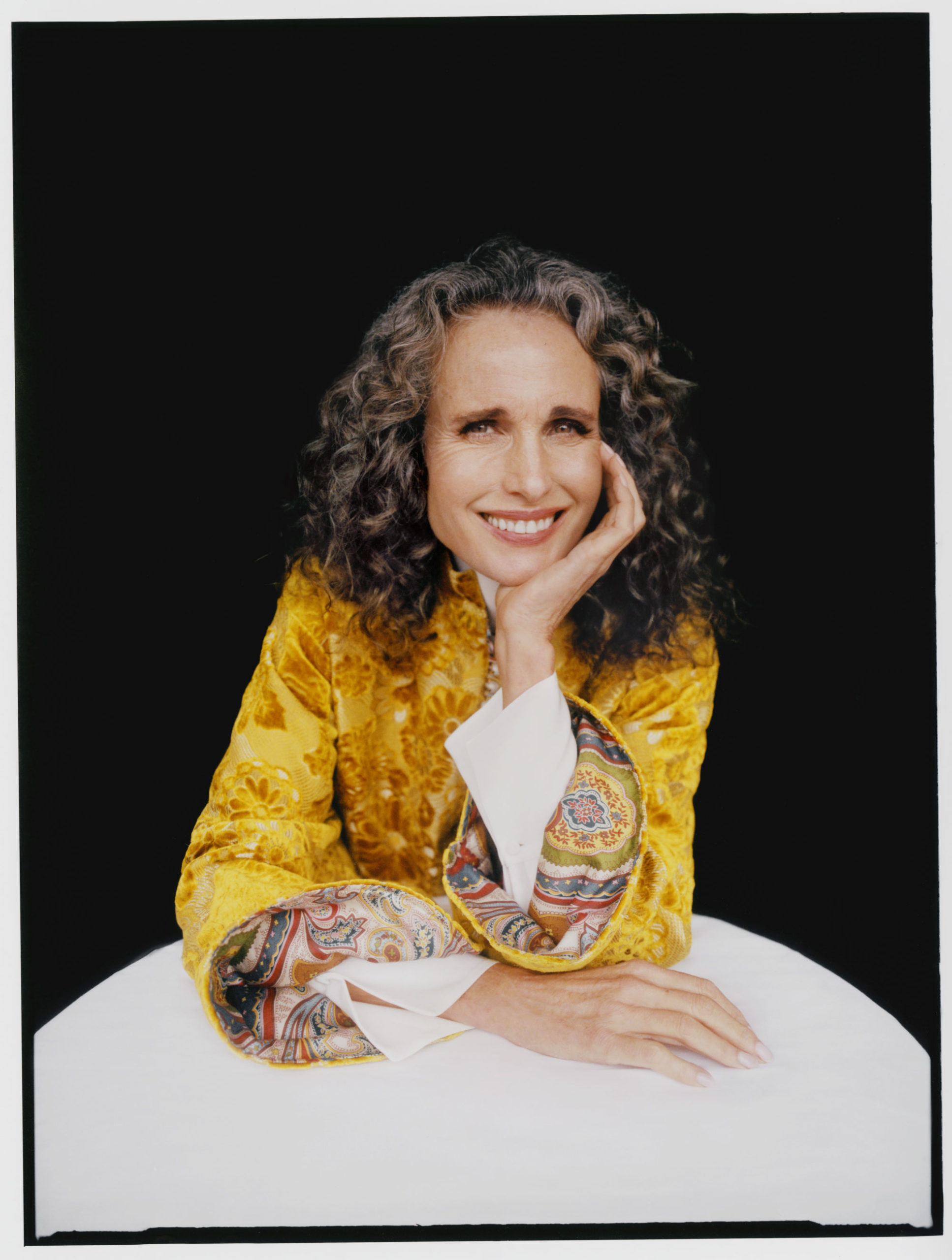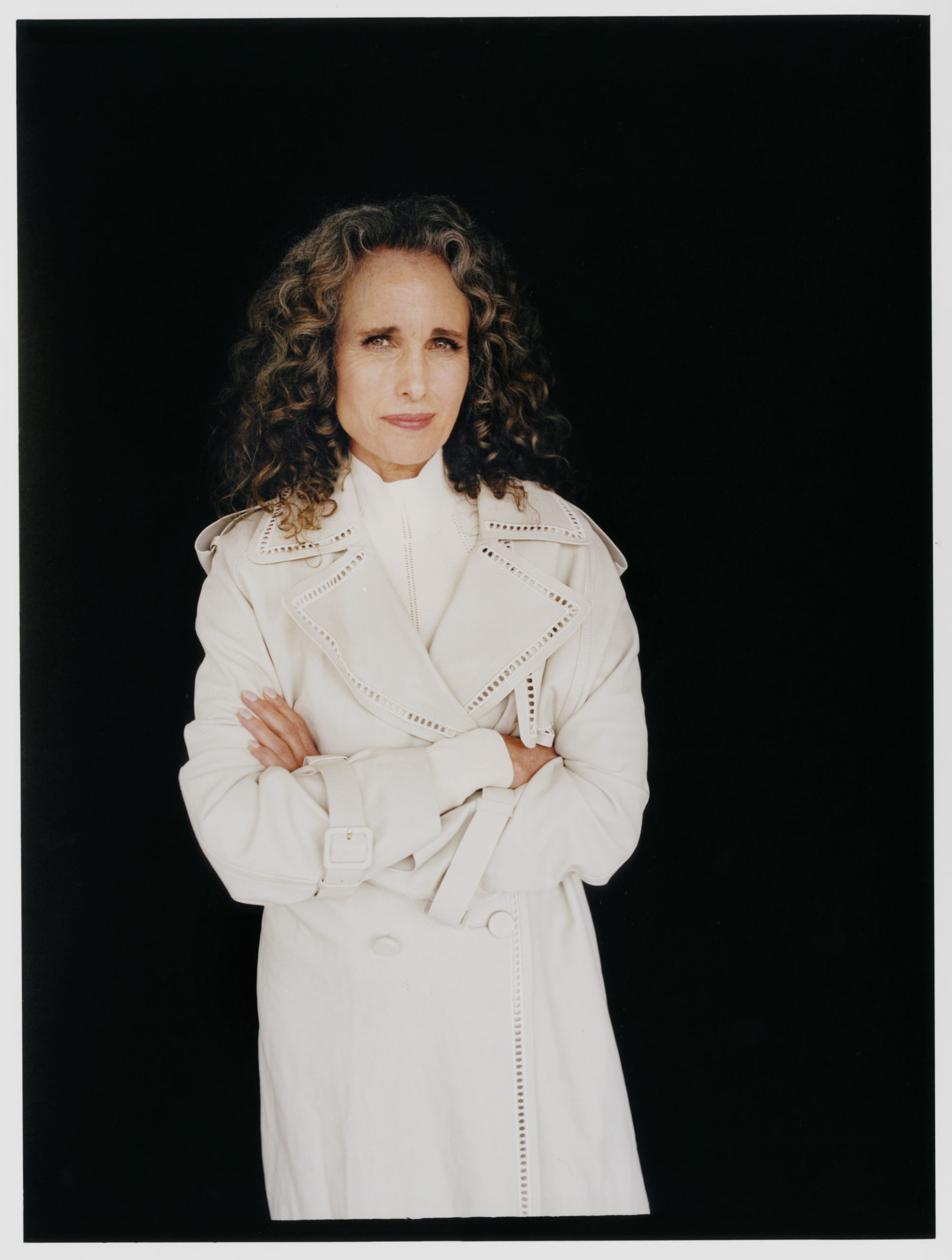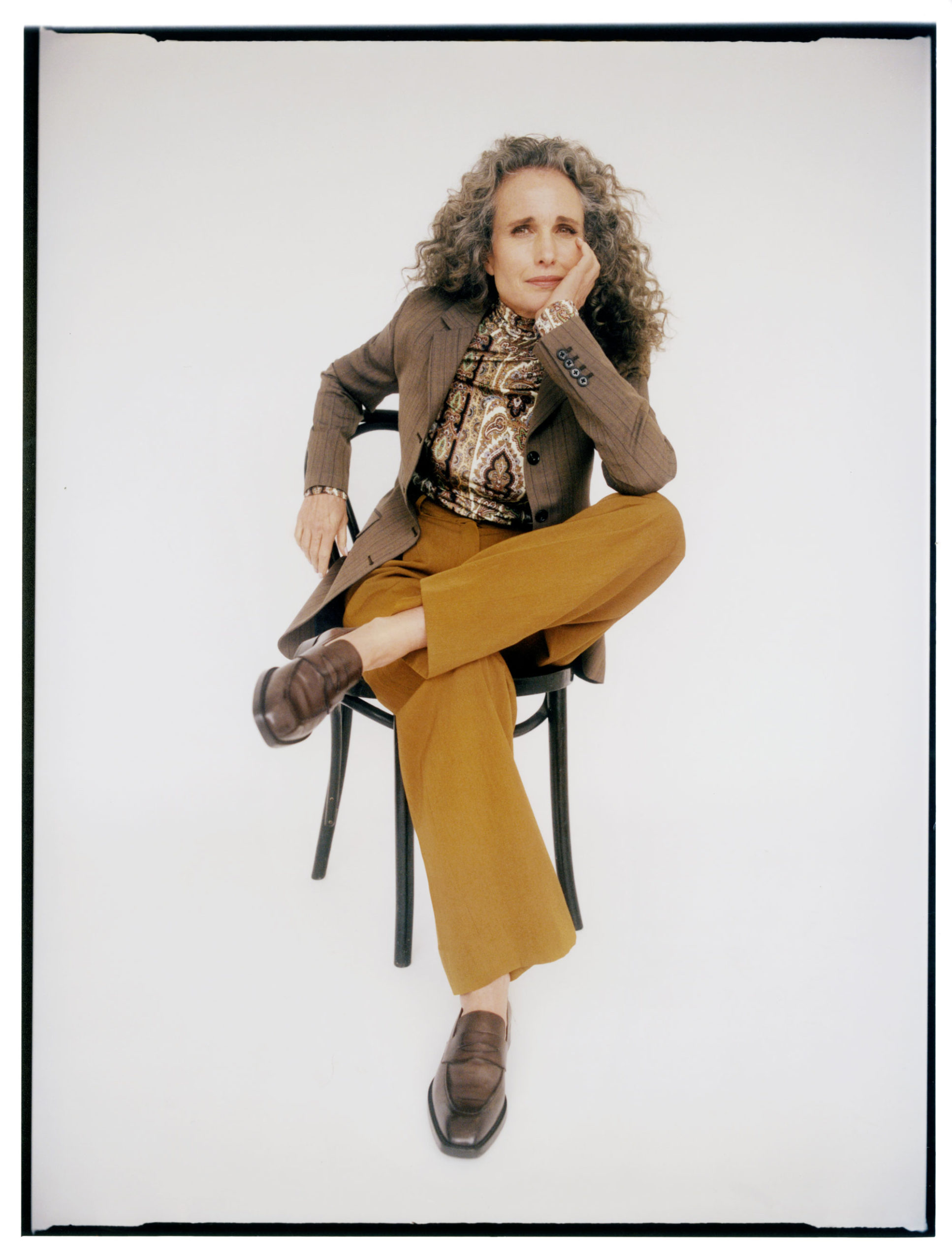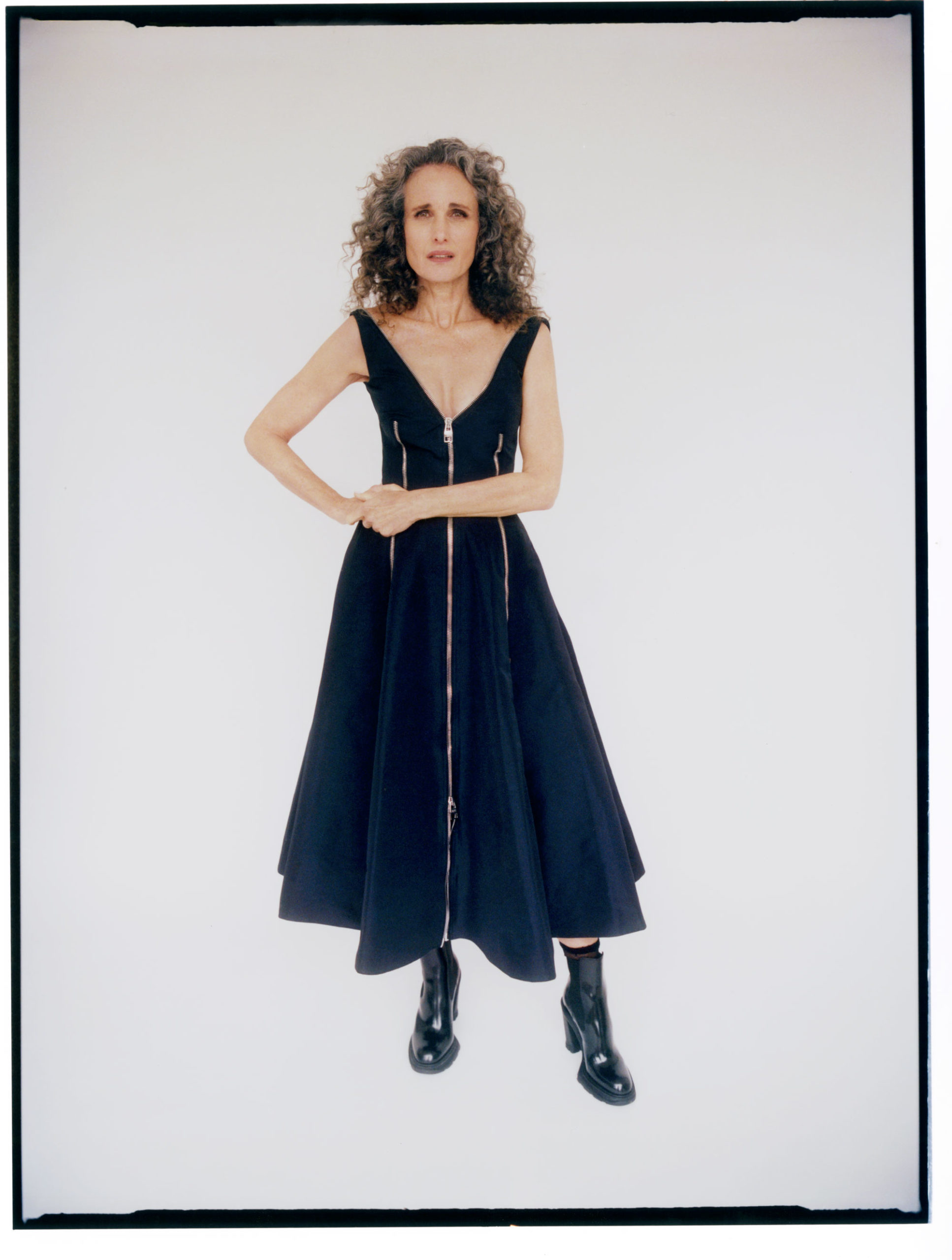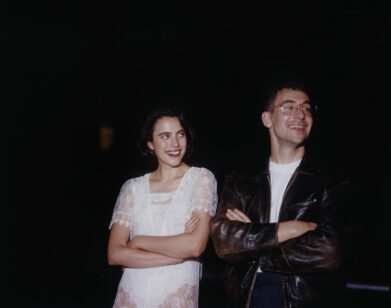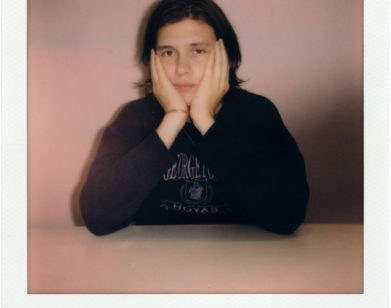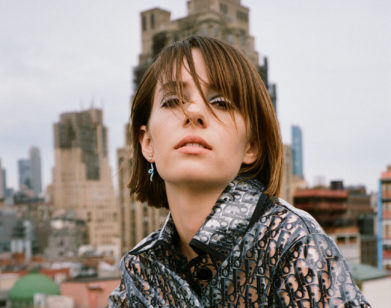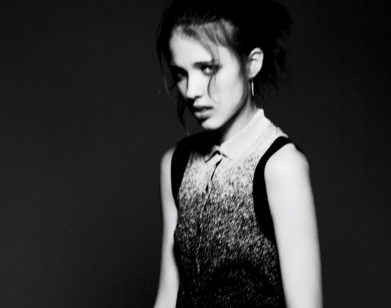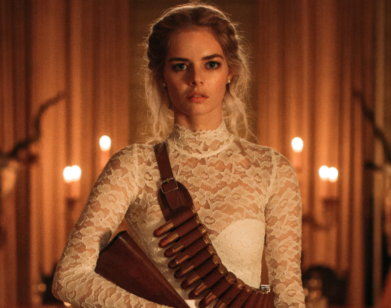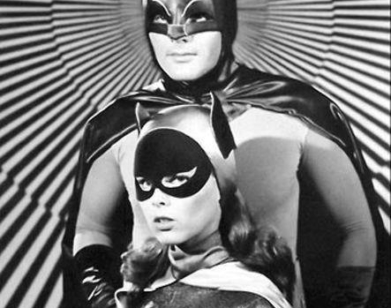IN CONVERSATION
Andie MacDowell and Michael Keaton on the Beauty of Getting Older
As the mother of three children, Andie MacDowell, the beloved Southern star of ’90s classics like Groundhog Day and Four Weddings and a Funeral, has spent the past few decades balancing professional ambition against her desire to put her family life first. In the Netflix series Maid (now streaming), the two once-opposing forces have collided: MacDowell plays the fictional mother to her real-life daughter, the 26-year-old actor Margaret Qualley. Adapted from the bestselling memoir by Stephanie Land, the show follows Alex, a young mother played by Qualley, as she flees an abusive relationship and finds work as a maid while struggling to avoid homelessness. Adding to the chaos is her mercurial mother, MacDowell’s Paula, described in the show as “undiagnosed bipolar.” The role called for MacDowell to do things she had never done before, both in her depiction of Paula, and in working alongside her daughter as peers. Also new for the former model: stepping in front of a camera with her natural, gray hair. Below, the actor speaks to Michael Keaton, her friend and Multiplicity costar, about venturing into the unknown.
———
MICHAEL KEATON: Sex, Lies, and Videotape was such breakthrough filmmaking. Did you sense at the time that [the director Steven] Soderbergh was something special?
ANDIE MACDOWELL: I just loved the script. I was in acting class at the time and couldn’t get a job. I was auditioning, and people would tell me, “We’re really surprised, you can actually act,” but they wanted to give the role to an established person. You know how that goes. Then I read the script and was like, “Oh my god, I know this character.” I had all my own ideas about the character—how reserved you are in the South, because you’re afraid to be a sexual creature, because you’re taught that nice girls aren’t like that. So I went in and read and he liked me. Then I had to come back and do it again for the producers because they were like, “What, her?” But I didn’t understand I had hit the jackpot until after it won at Cannes. Not only was it seen as a great piece of art, but it made money. Once you get those two elements under your belt, people see you differently. So I went from being kind of discarded to being wanted, and it was the most magical thing.
KEATON: You’ve always seemed to not care about that end of things, like, “Did it make money?” You had a whole life outside of show business.
MACDOWELL: That is true. My kids were always my priority and being a mother was the most important aspect of my life. But I was competitive and I did want to work, so I was always balancing both of those aspects of my life. I never did huge movies. I would love to do a Marvel movie, but that just didn’t happen. But I got really lucky that I chose great scripts that ended up doing really well, like Four Weddings and a Funeral. That’s where I somehow maneuvered myself through this business in a way that kept me going, because it really is about keeping it going.
KEATON: It is, and it ain’t easy to do. It goes in waves, doesn’t it?
MACDOWELL: It does. Because you feel like it’s all over and you’ll never work again and you’re terrified. Then all of a sudden, people like something you do, and you get a great script and feel revived, like, “Oh wow, okay. I’m not dead yet.”
KEATON: I had the greatest time on Multiplicity with you. I talk about it all the time, how fun you were to act with.
MACDOWELL: That’s so sweet. Well, I talk about you all the time, how amazing it was to watch you play four characters and keep everybody straight. That movie should have been much bigger than it was. Harold [Ramis, the director] had to be disappointed that it didn’t get more attention than it did.
KEATON: Well, Harold was so great, and Harold’s a Buddhist, so I think he just rolled with it. I said to him, “Hey, Harold, I don’t think they’re going to get behind this movie like they should.” Because at the time they had a big investment in The Cable Guy and that’s where they threw the money. I get people in Europe, everywhere—and you probably do too—telling me how much they love Multiplicity. So I think that’s what happened—it got set aside for a larger investment.
MACDOWELL: That’s unfortunate.
KEATON: But it doesn’t matter now, because you’re rocking.
MACDOWELL: I felt mostly for you because you were so amazing in it. I learned a lot from watching you. Even in this character [in Maid], I’ve picked up a lot of acting tips from you that have helped me to be brave, to not question taking a chance, to be bigger than I might normally be.
KEATON: It’s so fun to watch you. That’s the first thing I thought when I was watching: “Man, is she bold. This is great.”
MACDOWELL: It was terrifying. I do know people like that, that’s the thing. I grew up with people like that who didn’t hold back.
KEATON: My favorite thing about the actors that I admire is their courage. You show such guts and I love it, man.
MACDOWELL: Thank you so much. I’ve gotten the sweetest notes ever from the people that mean the most to me, like Sandra [Jennings, the wife of late acting coach Harold Guskin], who I used to train with in New York. Sandra wrote me this glorious note about my work.
KEATON: Trust me, you’re going to hear from more people. And you look great! Not that it matters, but you’re so gutsy to say, “This is how I look, man. This is my hair. I’m down with it.”
MACDOWELL: I feel better like this. Honestly, it’s exhausting to have to be something that you no longer are. I was finally like, “You know what? I’m not young. And I’m okay with that.” I hate the word ’embrace,’ because it always sounds like you’re having to accept something, and I don’t feel like that. We’re beautiful at every age and glorious in our own way, and we have so much to offer. I feel so much more comfortable. It’s like I’ve taken a mask off or something.
KEATON: It’s much harder for women in that area. That’s always been an inequity, for sure, the, “How did she look?” questions. They never ask that about men.
MACDOWELL: It’s true, and I got my inspiration from men, really. I was like, who do I want to be? How do I want to feel about myself? And I looked at all these men that embraced being their age, and I was like, I want to be like that.
KEATON: That’s really interesting.
MACDOWELL: I was looking at pictures of men, where they’re just their age, they’re normal, and we think they’re beautiful. I thought, okay, I may age and I want to be beautiful. So that’s where I got my “manspiration.” [Laughs]
KEATON: I know it’s clichéd, but if you’re paying attention at all, you end up getting a little smarter as you get older. I told somebody the other day, I’m just smart enough now to know how stupid I actually am. I’m smart enough to know what I don’t know. That’s the beauty of aging; there’s so much more to explore and become interested in.
MACDOWELL: I was even learning from my daughter, which was fascinating because I was working opposite her and had to show up not as her mother, but as her fellow actor. I had to let go. I’ve been working at letting go of the reins for a while anyway, because she’s so independent. But it was interesting to work with her because she is really comfortable with her choices and trusts her instincts. That was beautiful to watch.
KEATON: Let me tell you— you can’t see but my hand is up — swear to god, I didn’t know that was your daughter. I’m watching the pilot episode and I’m going, “Man, this young woman is good.” I couldn’t take my eyes off her and she is honest in every scene. She’s not overacting, she’s just telling the truth. How did the two of you end up working together? She wanted you to play the role, right?
MACDOWELL: Yeah, she asked for me. And she gave me so much space, which was really nice.
KEATON: I love when she tells that guy to put some shrimp on the barbie. Seeing the two of you, I wondered what it’s like to act with your own child, who’s not your child anymore.
MACDOWELL: It was really beautiful and intense. I would watch her to see how she was feeling about what I was doing, because she was the lead. So I was watching her to be sure that everything felt real and genuine and honest. We had a lot of comic moments together, too, and those were fun. But I liked the profound moments the most. I loved “Eight” the most, because I finally shut up in it. The kind of acting I prefer to do is not speaking, but I had to speak so much because of my character being manic. But I finally got to shut up in “Eight,” and that’s where, for me, the work was the most interesting.
KEATON: Both of your daughters are in the business, right? Do they both sing or play music?
MACDOWELL: It’s just my other daughter, Rainey, that sings and writes music. She’s doing really well, too. She’s been in some really great movies that have been at some festivals. I’ve got her two cats at my house. I guess they’re my cats now. I didn’t plan for that to happen, but it’s okay.
KEATON: Did you see that coming? That they were creative and they had the gene to act?
MACDOWELL: Well, I put them both in dance from a really young age because I love dance. I kind of danced when I was growing up, but not to the extent that I dreamed of. So they danced a lot and went to very prestigious dance camps. And they also did school plays and Rainey sang in choruses and stuff like that, but I was pleasantly surprised. At first people would say, “Doesn’t it worry you that your kids are going into acting?” And I didn’t know what they were talking about because it’s been such a great job for me. It’s not a lifestyle, it’s a job. And I was thrilled. For me what it meant was that I gave them a good life, that they respected what I did and there was nothing I did that harmed them. Otherwise, they wouldn’t have wanted to do it.
KEATON: That’s such a great way to look at it. I always got that from you, that acting wasn’t your lifestyle, it’s your job. That’s the way it’s always been for me. And that’s such a nice way to put it about your kids, because people are going to do what they want to do, if they’re living right. You’ve got to let them be what they’re going to be. You did good, as they say.
MACDOWELL: Thank you. My kids are still so important to me, but they’re adults now. So working out that component of my life has been really interesting. Margaret wrote me something the other day and I can’t remember what she called me—it was something like sweetheart, this term of endearment I’ve called her her whole life. But it was as if we had switched roles and she was the adult. It’s interesting when they start treating you like equals, or even parenting you in a way.
KEATON: That’s really sweet.
MACDOWELL: I need to find out where you are, what you’re doing and all that good stuff. But I guess I can google you.
KEATON: Right now, it’s the prettiest autumn I’ve had in a while here in Montana.
MACDOWELL: So that’s what you’re doing.
KEATON: I’m here quite a bit. But I just came back from New York, where I was promoting this thing Dopesick, a limited series for Hulu. I got in late last night. And I got this movie Worth out, so I’m kind of tired. I’ve been out selling. In fact, when I hang up I’m going to put on my boots and take a little hike.
MACDOWELL: Good for you!
KEATON: All right, I miss seeing you darlin’. Let’s hang.
MACDOWELL: I’m here if you ever want to go for a hike!
KEATON: Let’s do that.
Hair: Ken O’Rourke: @kenorourke1
Makeup: Kelly Cornwell: @lipstickkelly

